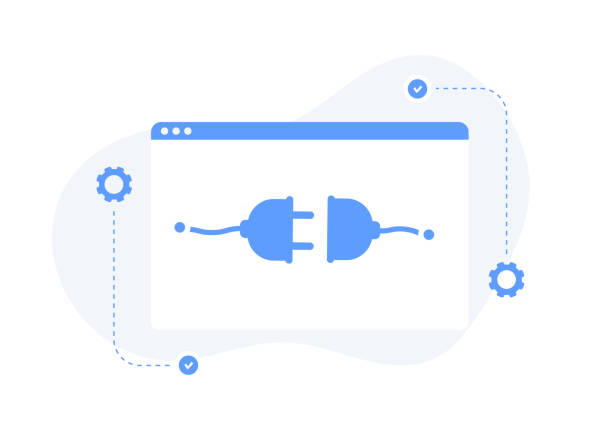
Table of Contents
1. Introduction
What Is Web Hosting?
Web hosting is a service that allows your website to be accessible on the internet. When you create a website, it contains files, images, and data that need to be stored on a server. Web hosting providers offer these servers, making your website’s content available to users worldwide whenever they type in your website’s domain name.
Why Is Web Hosting Crucial?
Selecting the right web hosting is essential because it directly impacts your website’s performance, security, and reliability. A well-chosen hosting service ensures that your site loads quickly, remains online, and is secure against potential threats..
2. Types of Web Hosting
1. Shared Hosting
Shared hosting is the most common and affordable type of web hosting. In this setup, multiple websites share the same server resources, such as CPU, memory, and bandwidth. It’s an ideal choice for beginners and small websites with low to moderate traffic.
- Pros: Cost-effective, easy to manage, and beginner-friendly.
- Cons: Limited resources, slower performance, and potential security risks due to sharing with other sites.
2. VPS Hosting
Virtual Private Server (VPS) hosting offers a middle ground between shared and dedicated hosting. In VPS hosting, a physical server is divided into multiple virtual servers, each with its own dedicated resources. This provides more control and better performance compared to shared hosting.
- Pros: More control, better performance, and scalability.
- Cons: More expensive than shared hosting, requires some technical knowledge.
3. Dedicated Hosting
Dedicated hosting gives you an entire server exclusively for your website. This type of hosting offers the highest level of performance, security, and control, making it suitable for large websites with high traffic.
- Pros: Maximum control, top performance, and enhanced security.
- Cons: Expensive and requires technical expertise to manage.
4. Cloud Hosting
Cloud hosting uses a network of servers to distribute your website’s resources. This setup offers scalability, as you can easily increase or decrease your resources based on your website’s needs.
- Pros: Scalability, reliability, and pay-as-you-go pricing.
- Cons: Can be more expensive than other hosting types, and may require technical know-how.
3. Key Features to Look for in a Hosting Provider
1. Uptime Guarantee
Uptime refers to the amount of time your website is available online. Look for a hosting provider that offers at least a 99.9% uptime guarantee, ensuring that your site remains accessible to visitors as much as possible.
2. Speed and Performance
Website loading speed is critical for user experience and SEO. Choose a hosting provider with fast server response times and solid-state drives (SSDs) for better performance.
3. Customer Support
Reliable customer support is essential, especially if you’re new to web hosting. Look for providers that offer 24/7 support through multiple channels, such as live chat, phone, and email.
4. Security Features
Security should be a top priority when choosing a hosting provider. Look for features like SSL certificates, regular backups, and malware scanning to protect your site from threats.
5. Scalability
As your website grows, your hosting needs may change. Choose a provider that offers scalable solutions, allowing you to upgrade your plan or resources as needed without significant downtime.
6. Pricing
While it’s important to find a cost-effective solution, don’t compromise on quality. Compare pricing plans and features across different providers to ensure you’re getting the best value for your money.
4. Common Hosting Mistakes to Avoid
1. Choosing Based on Price Alone
While affordability is important, choosing the cheapest hosting plan can lead to poor performance, limited resources, and inadequate support. It’s better to invest in a hosting plan that meets your website’s needs.
2. Overlooking Security
Failing to prioritize security can leave your website vulnerable to attacks. Always opt for a hosting provider that offers robust security measures, including SSL certificates and regular backups.
3. Ignoring Customer Support
If something goes wrong with your website, you’ll want quick and reliable support. Choosing a provider with poor customer service can lead to prolonged downtime and frustration.
4. Not Considering Future Growth
It’s important to think ahead when choosing a hosting plan. If your website grows faster than expected, you’ll need a hosting provider that offers easy scalability without excessive costs.
Faq Question about web hosting
1. What is web hosting, and why do I need it?
Answer: Web hosting is a service that allows your website to be accessible on the internet. It provides the storage space and resources needed to make your website’s files available online. Without web hosting, your website wouldn’t be accessible to visitors.
2. What are the different types of web hosting?
Answer: The main types of web hosting are Shared Hosting, VPS Hosting, Dedicated Hosting, and Cloud Hosting. Each type offers different levels of resources, control, and performance, catering to various website needs.
3. How do I choose the right web hosting provider?
Answer: When choosing a web hosting provider, consider factors like uptime guarantee, speed and performance, customer support, security features, scalability, and pricing. Make sure the provider meets your website’s needs and future growth potential.
4. What is the difference between Shared Hosting and VPS Hosting?
Answer: Shared Hosting involves multiple websites sharing the same server resources, making it more affordable but with limited resources. VPS Hosting, on the other hand, provides a dedicated portion of server resources for your website, offering better performance and control.
5. Is security important when choosing a hosting provider?
Answer: Yes, security is crucial. A good hosting provider should offer SSL certificates, regular backups, firewalls, and malware protection to keep your website safe from cyber threats.
5. Conclusion
Choosing the right web hosting service is a crucial step in building and maintaining a successful website. By understanding the different types of hosting and the key features to look for, you can make an informed decision that ensures your site’s performance, security, and scalability. Whether you’re launching a small blog or a large e-commerce site, the right hosting provider will set the foundation for your online success.
6. Call to Action
Ready to find the perfect hosting plan for your website? Start by evaluating your needs and comparing the top hosting providers in the market. Don’t forget to consider factors like uptime, speed, security, and support to ensure you make the best choice for your site’s success.



